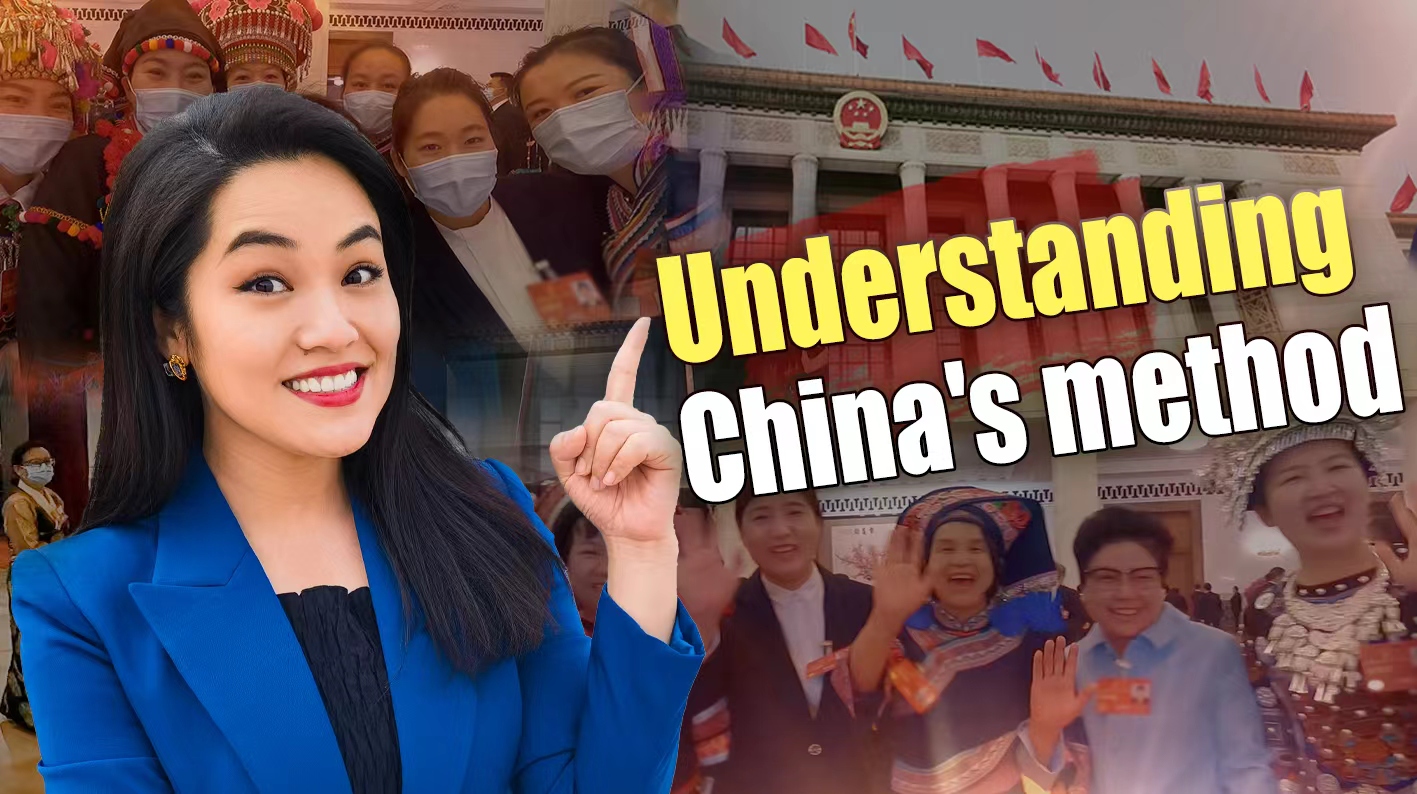
How to best run a country with a very diverse population of 1.4 billion, the largest in the world, and respond effectively to their requests?
It'd be a tough question for any politician to answer, but considering China's economic success as well as its achievements in science, technology, sports and national defense within a few decades, it's worth wondering: probably China has done something right, rather than painting it as an "autocracy," as some Western countries have sought to do.
As a reporter who has been covering China's most important annual political meeting for five years, and traveled through different corners of the country to see how policies have changed people's lives, I will attempt to explain how whole-process people's democracy works in China, and how it broadly involves people from all groups in the decision-making and policy-making process.
Besides explaining the concepts, I will also include the interviews I've done with several grassroots deputies who have made changes in rural China.
This is not an attempt to prove China has the best or only method for development. Nothing can be "one size fits all." Rather, it is meant to provide those who are interested in understanding China's system with another point of view besides mainstream Western watchers' depiction. China's successful experience in providing better livelihoods for such a large population may be useful for those who hope to achieve the same goal in their own countries.
Involving everyone in decision-making
Every year during China's annual political meeting, the Two Sessions, which sets yearly goals for the country, nearly 3,000 people wear suits, traditional ethnic clothes and military uniforms that reflect the groups, regions and sectors they represent, and gather at the Great Hall of the People in central Beijing.
They are deputies to China's National People's Congress (NPC), the country's top legislature and the highest organ of state power, and members of the Chinese People's Political Consultative Conference (CPPCC), the country's top political advisory body. Together, the annual meetings of the NPC and the CPPCC are referred to as the Two Sessions.
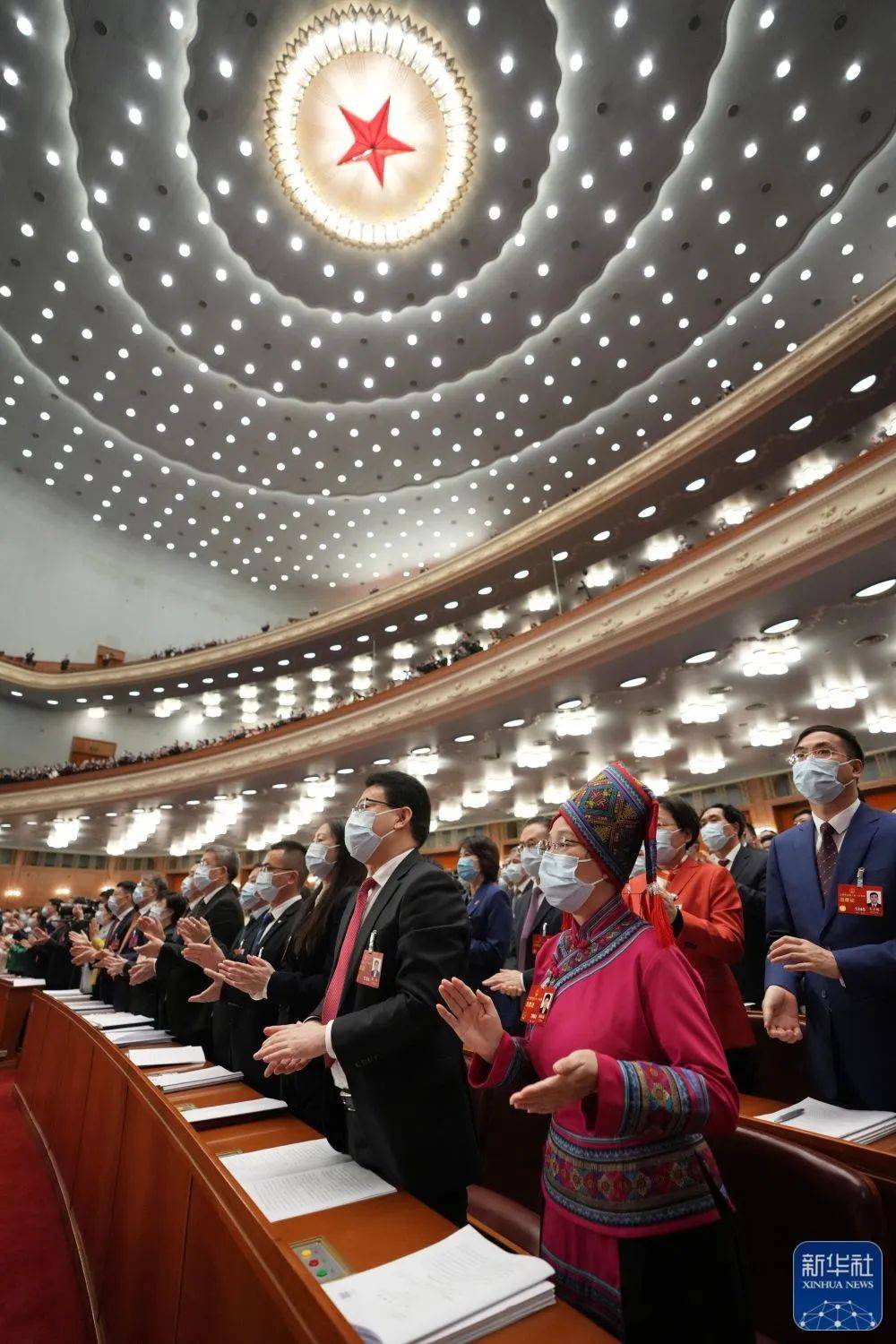
Deputies attending the first plenary session of the 14th National People's Congress on March 5, 2023 /Xinhua
Deputies attending the first plenary session of the 14th National People's Congress on March 5, 2023 /Xinhua
They are the people who shape China as they have the power to legislate, appoint and remove officials, make decisions on matters of national development, and supervise.
Here I need to explain the crucial institutional guarantee for the effective running of the country: the system of people's congresses.
In China, people exercise state power through people's congresses; people's congresses exercise state power collectively on behalf of the people. The National People's Congress is the highest organ of state power. Local people's congresses at all levels are local agencies of state power. All administrative, supervisory, judicial and procuratorial organs of the state are created by the people's congresses, to which they are responsible and by which they are supervised.
Before holding the NPC, people's congresses were already held at the township, county, city and provincial levels to make sure motions and advice could be raised from bottom to top.
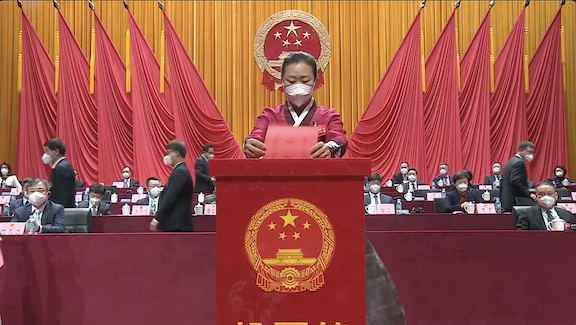
People vote at a local people's congress in Yanji City, Jilin Province, in northeast China in February 2023. /CGTN
People vote at a local people's congress in Yanji City, Jilin Province, in northeast China in February 2023. /CGTN
To make sure all groups are represented at the national level, the deputies come from every ethnic group with various backgrounds.
Take this year as an example, a total of 2,977 deputies were elected to the 14th NPC, among them, 442 are from the 55 ethnic minority groups in China, accounting for 14.85 percent, and every minority group has at least one deputy to the NPC. Those who are from what are referred to as peasant and worker backgrounds are 497 in total, accounting for 16.7 percent.
Both numbers were higher than at last year's Two Sessions.
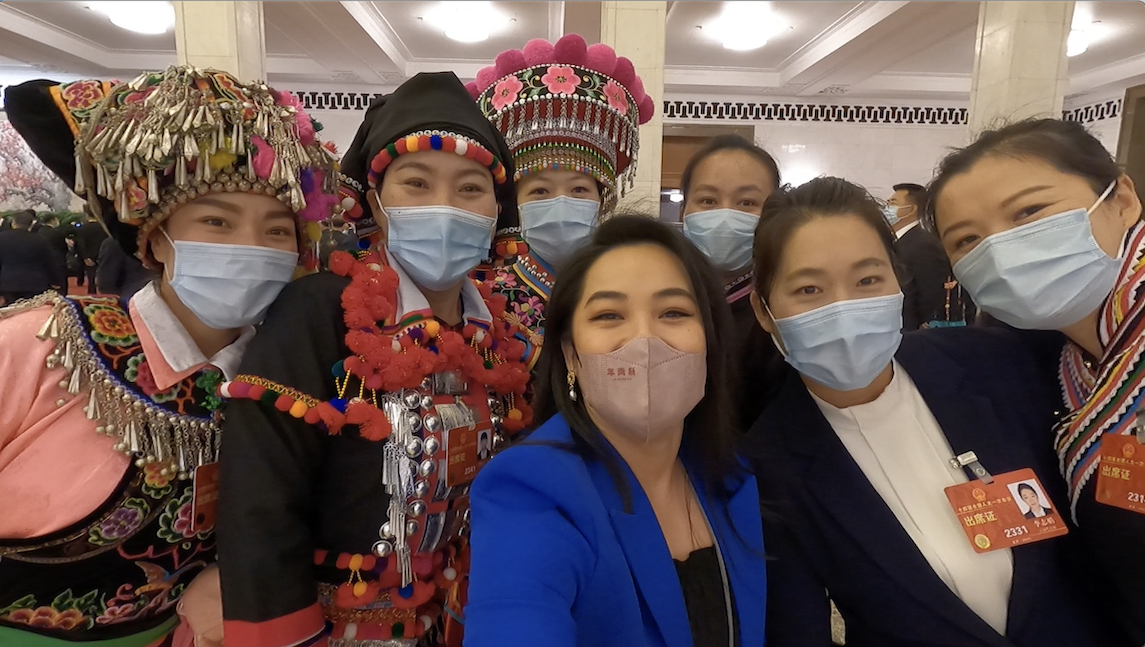
Deputies from multiple ethnic groups from Yunnan Province take a selfie with CGTN reporter Li Jingjing after finishing an interview at the Great Hall of the People in Beijing. /CGTN
Deputies from multiple ethnic groups from Yunnan Province take a selfie with CGTN reporter Li Jingjing after finishing an interview at the Great Hall of the People in Beijing. /CGTN
I've interviewed dozens of deputies from different ethnic groups. They all shared the pride they felt in representing their people at the NPC and bringing advice to improve their people's lives.
"If we, who come from different ethnic groups, can hold together like pomegranate seeds as President Xi Jinping said, and build our country, our Chinese nation will definitely be greater and greater!" said Zhao Ziyi, a deputy of the Bouyei minority from southwest China's Guizhou Province.
Most of the deputies to all levels of people's congresses in fact come from the grassroots and have close connections with the people, so they can solicit and submit people's suggestions and advice through various forms and channels.
At the end of 2020, 2.62 million people were serving as deputies to people's congresses at all levels nationwide. Among them, those at county and township levels accounted for 94.5 percent of the total.
Some may ask, can the deputies really make a difference? I will share the story of another deputy I've interviewed.
At this year's Two Sessions, I interviewed a deputy named Zhang Shuqin from Linyi City, east China's Shandong Province, who has been working as a teacher for 36 years. Dedicated to improving the education system at the grassroots, she has been re-elected as a deputy to the NPC for the fourth time, which means 2023 will be her 16th year working as an NPC deputy.
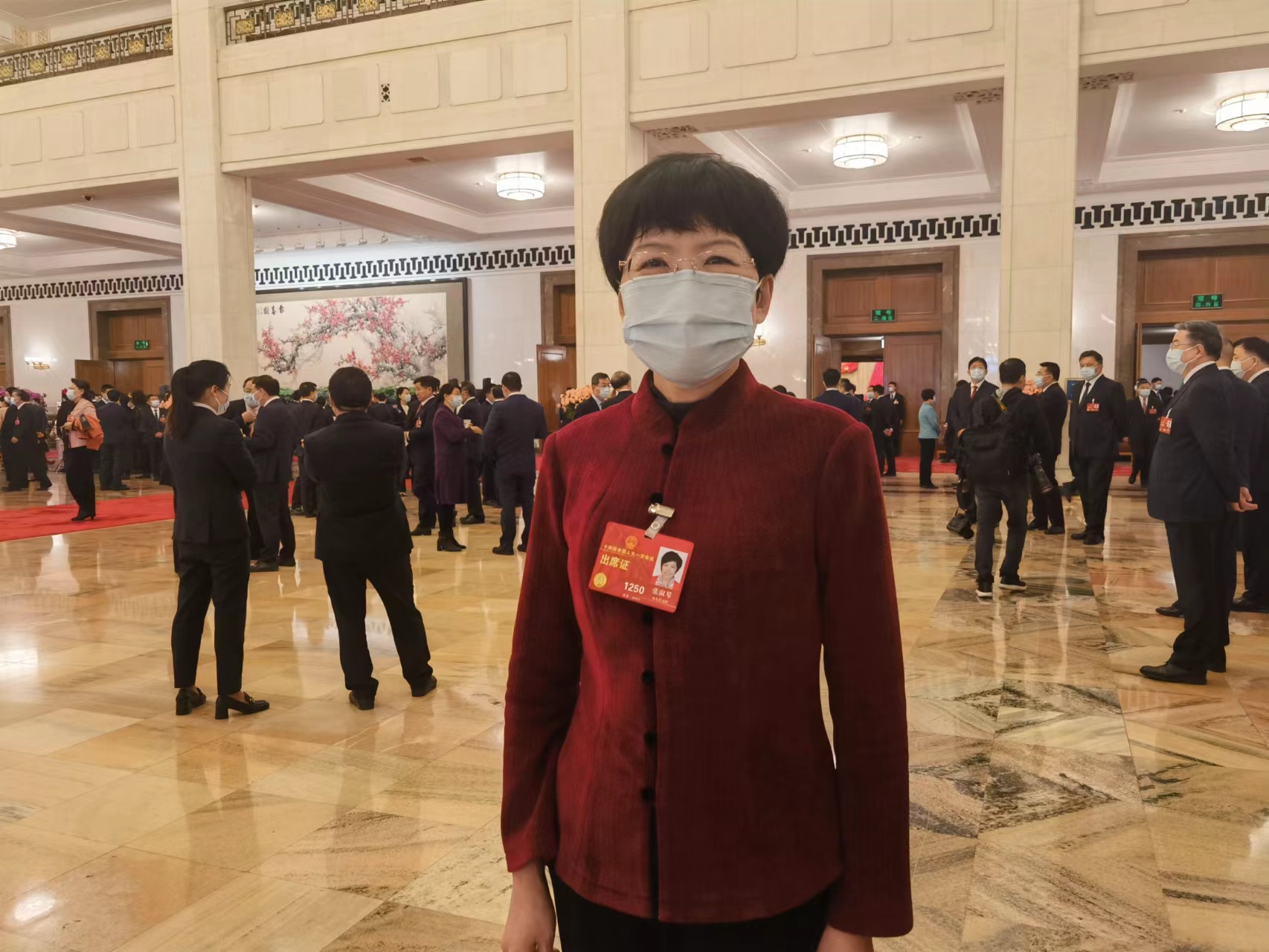
Zhang Shuqin from Linyi City, Shandong Province. /CGTN
Zhang Shuqin from Linyi City, Shandong Province. /CGTN
"In the past 15 years, I've submitted over 240 motions and advice to the NPC and nearly half of them have already been implemented," she said. "My motion on cracking down on human trafficking has been incorporated into criminal law, and some others have been written into Shandong's provincial law on protecting minors."
The development of education at local levels can be seen through the proposals and advice she submitted every year: From focusing on upgrading infrastructure for schools in rural areas to improving salaries and social insurance to attract young talented teachers to stay in rural areas, to now focusing on providing mental health consultations to students in rural areas.
Dramatic changes and improvements have taken place all across this vast country in the past few decades. Without deputies coming from every region and sector bringing their issues to the national level, and their motions being carefully reviewed and implemented, China couldn't have accomplished what it has.
Multiparty cooperation, political consultation
Some may not know that China is neither a one-party system nor a multiple-party system whereby powers vie for control and govern in turn.
It is a multiparty cooperation system in which the Communist Party of China (CPC) exercises state power. In addition to the CPC, there are eight other political parties: the Revolutionary Committee of the Chinese Kuomintang, the China Democratic League, the China National Democratic Construction Association, the China Association for Promoting Democracy, the Chinese Peasants and Workers Democratic Party, the China Zhi Gong Party, the Jiusan Society and the Taiwan Democratic Self-Government League.
As the governing party, the CPC works together with the other parties and the non-affiliates. Members of the other parties and the non-affiliates also hold certain percentages of deputies to people's congresses.
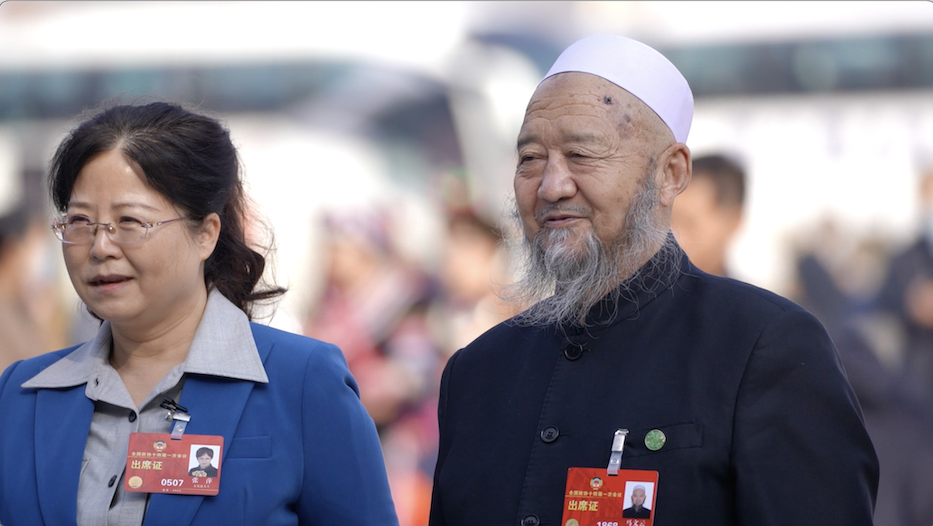
Members of the CPPCC walk into the Great Hall of the People in Beijing on March 4, 2023. /CGTN
Members of the CPPCC walk into the Great Hall of the People in Beijing on March 4, 2023. /CGTN
Also crucial to China's political institution is the CPPCC, which promotes unity, strengthens multiparty cooperation, and practices people's democracy in the process of political consultation.
Through the institutions of the CPPCC, representatives from all political parties, people's organizations, ethnic groups and social sectors engage in political consultation. They make proposals, conduct inspections and field surveys, and report on social conditions and public opinion on a regular basis.
On an equal footing, members of CPPCC conduct extensive, constructive consultations, and put forward opinions and suggestions on important national policies and strategies, and major economic and social matters.
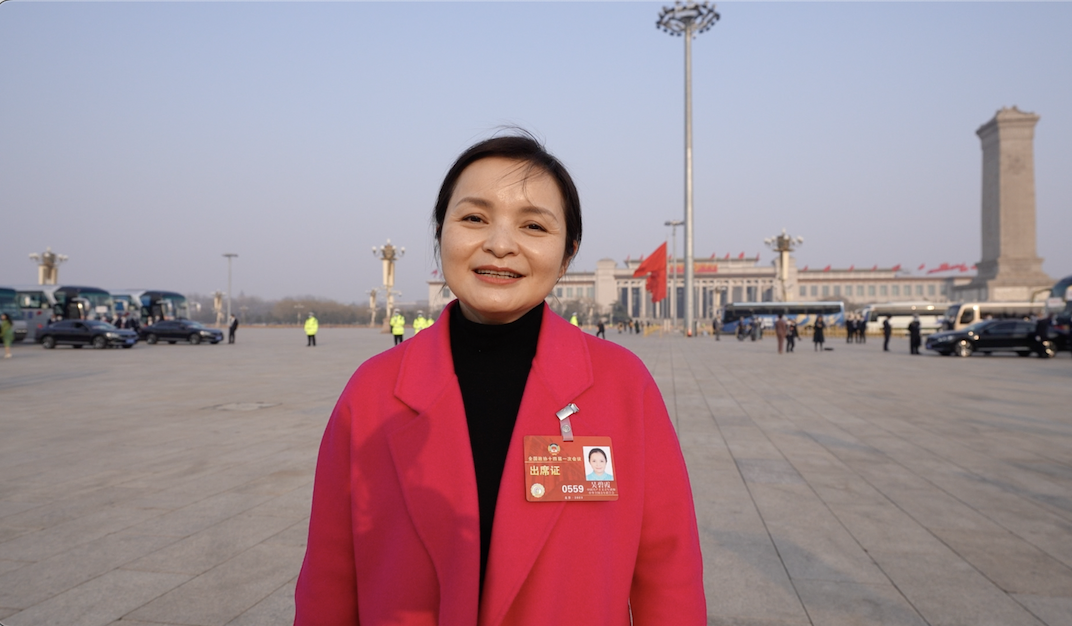
Member of the CPPCC and renowned singer Wu Bixia speaks to CGTN on March 4, 2023. /CGTN
Member of the CPPCC and renowned singer Wu Bixia speaks to CGTN on March 4, 2023. /CGTN
Wu Bixia, a music teacher and also a renowned folk singer, told CGTN on the opening day of the CPPCC that this year she would focus on how to improve music training for young people, and how to better protect intangible cultural heritage and dialects from distinction.
The CPC collects and adopts suggestions that are sound. During the Two Sessions each year, members of the CPPCC National Committee submit proposals for deliberation. They also sit in on NPC sessions to participate in the discussions on the amendments to laws and on the work reports of the central government, the Supreme People's Court and the Supreme People's Procuratorate.
This mechanism ensures that all the people can play a part in overseeing the work of the government, and forms China's own model of democracy.
This unique political system has certain advantages: it prevents some parties from standing for the interests of only a small group of people or interests groups, such as the situation we see in some countries where the ruling party making decisions mainly in their own interests or the interest of the classes, regions and groups they represent, which could provoke divisions in society.
Through this mechanism, it can represent and fulfill the interests of a maximum number of people, and unite people from different ethnic groups and social sectors into achieving one common goal, which is improving people's lives, solving issues in society and building a strong, independent, modern socialist country.